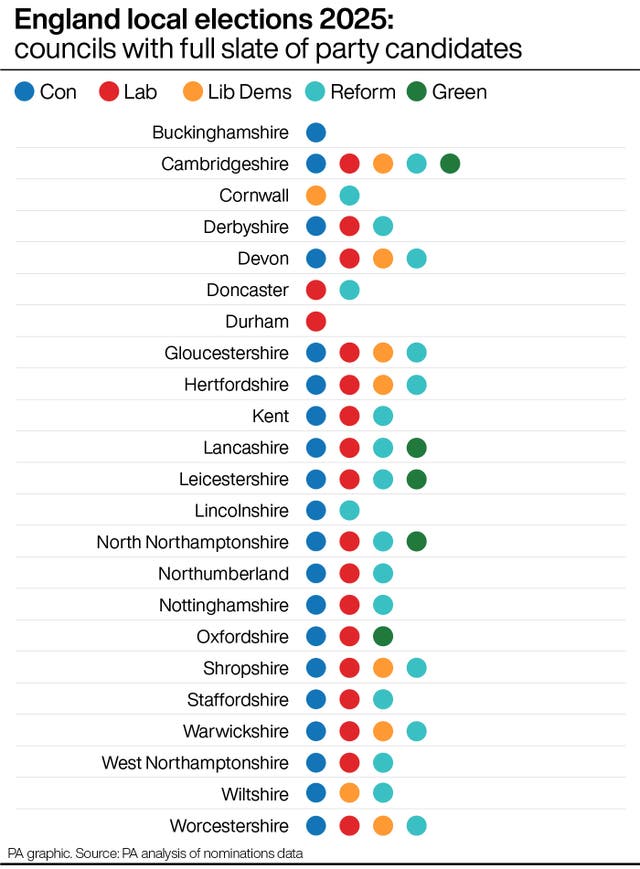‘Disillusionment’ a driver ahead of local elections, says pollster
Voters across parts of England will go to the polls on Thursday to elect councillors, regional mayors, and a new MP in the seat of Runcorn and Helsby.

“Disillusionment” and “trying to send a signal to the powers that be” will be driving forces in this week’s local elections, a pollster has suggested.
Voters across parts of England will go to the polls on Thursday to elect councillors, regional mayors, and a new MP in the seat of Runcorn and Helsby.
Some 1,641 council seats are up for grabs on May 1, across 23 local authorities, while six mayoralities are also being contested.

These are the first major electoral tests for the parties since last July’s general election, which saw Labour win a majority of seats in the House of Commons.
They will also be an opportunity to examine whether Nigel Farage’s Reform UK’s surging poll numbers are translating into votes.
Luke Tryl, executive director at More in Common, told reporters that “disillusionment” is a “primary driver” ahead of the votes.
More in Common have been polling the public across areas where there are polls later this week.
Mr Tryl explained: “I don’t think I’m exaggerating to say that the groups that we did over the past week are some of the most disillusioned, disappointed, disaffected that we’ve run.
“There was a real sense that people keep demanding change from politics and they’re not getting that change, and that they are as a result not just thinking things are bad, but starting to lose faith in the inability of the system to change things.”

Among people who are considering voting Reform, Mr Tryl suggested, there is a feeling of “we may as well roll the dice on getting something different”.
He added: “This is a disillusionment election, it’s also a bit of a rolling the dice election and trying to send a signal to the powers that be election as well.”
The winter fuel allowance, disability benefits, and small boat crossings are among the issues that have been raised by voters in focus groups, he said.
Local and mayoral contests can reflect attitudes towards neighbourhood concerns such as potholes and bin collections, but they can also be an opportunity to pass verdict on parties’ national stances.
The by-election in Runcorn and Helsby will see Mr Farage’s party trying to overturn Labour’s victory last summer.
The vote was triggered by Mike Amesbury’s decision to stand down rather than face a recall petition after he received a 10-week prison sentence – suspended on appeal – for punching a man.
Mr Tryl said that Reform should win the contest if their polling figures are correct.
“In general and given where we are with national polling we would expect that if Reform (…) are matching their current national voting intention that they should take the Runcorn by-election,” he said.
If they do not win, Mr Tryl believes it could suggest two things: firstly that enthusiasm for the party is being overstated by polling, or secondly, that their operation of getting people out on polling day is not as good as other parties.
“We know that Labour in particular in general – not always – tends to have a better get out the vote operation on the ground,” Mr Tryl added.
New polling released on Tuesday indicated Reform are continuing to lead Labour nationally.
New voting intention figures released by YouGov on Tuesday had Mr Farage’s party sitting on 26%, one percentage point higher than the 25% they recorded last week.
Labour are on 23%, no change from last week, while the Conservatives remained on 20%.





